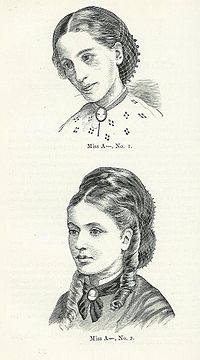
Photo from wikipedia
Abstract Objective Avoidance of colorectal cancer (CRC) screening is well documented with emotional barriers deterring screening intention and uptake. However, the assessment of such aversion is limited by the available… Click to show full abstract
Abstract Objective Avoidance of colorectal cancer (CRC) screening is well documented with emotional barriers deterring screening intention and uptake. However, the assessment of such aversion is limited by the available instruments focusing on siloed emotions or screening procedures, limiting relevance to the complete process of decision‐making in the CRC context. Methods To address this gap, psychometric properties of the newly developed Aversion to Bowel Cancer Screening Scale (ABCSS) were assessed using data from 640 CRC screening eligible asymptomatic community members. Item review and piloting reduced 179 items to the initial 29‐item scale. Using a holdout sample technique, exploratory and confirmatory factor analysis, reliability and validity checks were conducted. Results A three‐factor model (Fecal Occult Blood Test [FOBT] Aversion, Colonoscopy Aversion and Health Conscientiousness) with 21 items was identified. Analyses of the 21‐item ABCSS indicated excellent reliabilities for the scale and subscales (α = .91 to .95). Correlations with relevant existing measures, intention and behaviour indicated good construct validity. Conclusion The ABCSS is a valid measure of aversion to CRC screening for asymptomatic community members facing the decision to undertake CRC screening. This instrument may provide a more comprehensive understanding of the decision‐making process for CRC screening.
Journal Title: European Journal of Cancer Care
Year Published: 2022
Link to full text (if available)
Share on Social Media: Sign Up to like & get
recommendations!